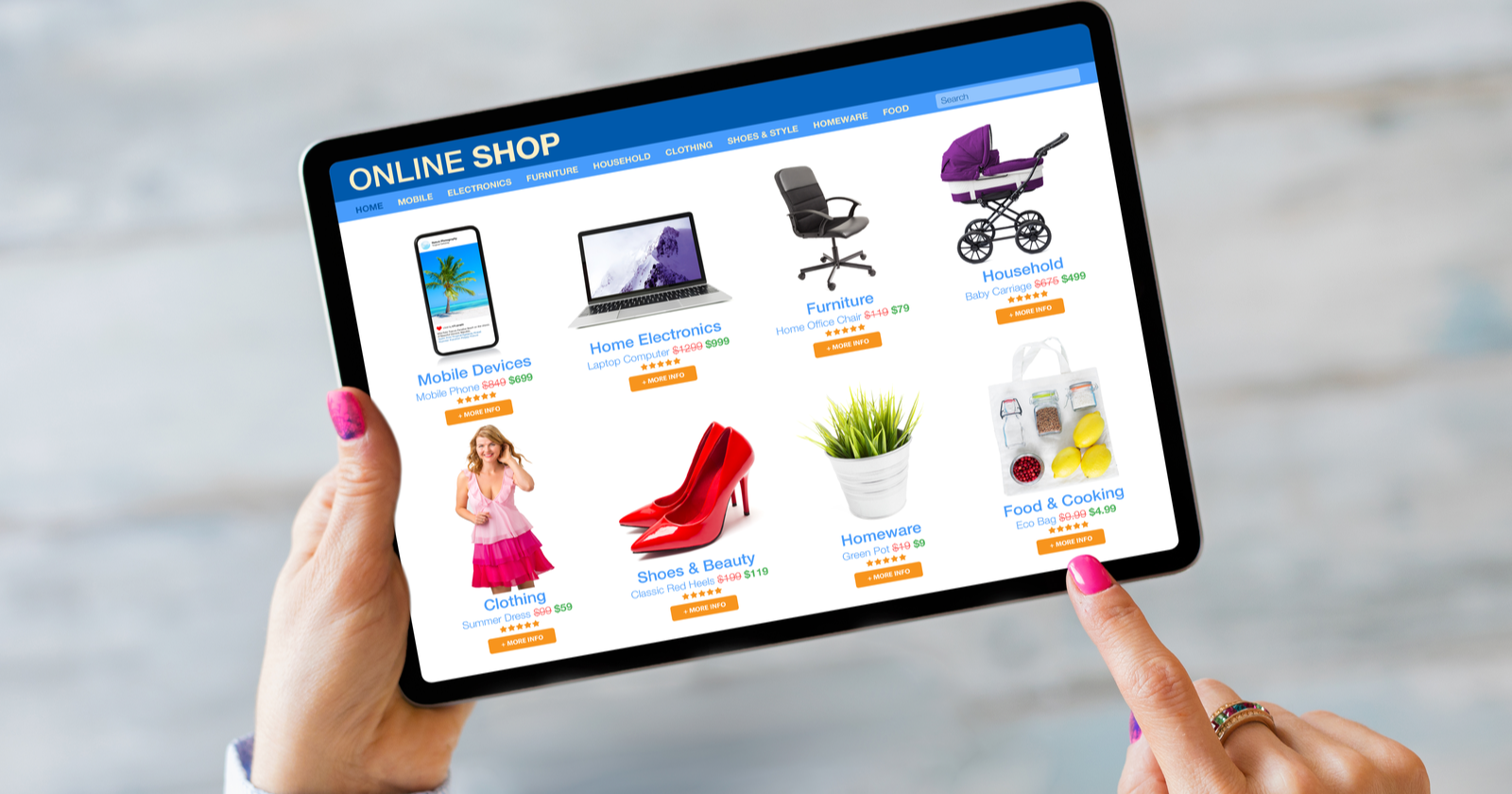Like Google, writing for the Amazon marketplace has its quirks and best practices to help more potential buyers find your products.
If you want to ensure that potential customers easily find your listings, you’ll need to tailor your titles and bullets to the Amazon algorithm compelling to customers.
Compared to the Google search algorithm, Amazon search is fundamentally different.
The ecommerce giant prioritizes its search listings in an entirely different manner optimized specifically for ecommerce and buying online.
Customers who come to Amazon find the products they wish to purchase through search, which means they have already decided the type of product they’d like to purchase in advance.
These buyers are already “bottom of the funnel” prospects in the marketing funnel, so you’ll have to tailor your Amazon marketing to this specific stage in the customer journey.
This is where high-converting copywriting is essential.
We will explore nine tips you can implement and use today to start writing better titles and bullets for your Amazon listings leading to more customers and happy buyers in the process.
1. Diligent Keyword Research
Keyword research has always been an essential part of search engine optimization. Still, when it comes to keyword research for the Amazon marketplace, there are several additional factors you have to consider.
Remember that you want to focus on keywords with stronger buyer intent, as Amazon’s traffic tends to be customers ready to buy or at the bottom of the marketing funnel.
You can use third-party tools such as Helium 10, Merchant Words, and Sellzone to help identify search volume.
However, you want to prioritize keywords that will bring the most qualified buyers to your listing over words with the highest search volume.
Once you have identified the most relevant terms for your product, you can prioritize based on search volume.
Use a combination of your own brainstormed keyword research and reverse ASIN searches for your product and close competitors.
When you’re doing your keyword research, you should “triage” your keyword list and identify the most important keywords that describe the primary benefits of your product and the problem it solves for your customers.
Also, look at the keywords your competitors are ranking for as well as those you wish to rank for,
Generally, your most important keywords will go into your Amazon title.
After writing your title, sprinkle your primary keywords into your bullet points.
You can use a tool like Helium 10’s Scribbles to ensure you include all of your high-priority keywords into your list and don’t unintentionally remove any important keywords when rewriting listings.
2. Understand Your Audience
To be successful in the Amazon marketplace, you need to know the keywords you want your product to rank for, but you must also know and understand your audience’s motivations and desires.
How will your product solve your future customers’ problems or satisfy their needs?
Identifying the key buyer of your product is vital on Amazon.
It’s also important to remember that the primary purchaser of your product may be completely different from the end-user.
For example, you don’t sell teenage deodorant directly to teenagers.
For this product, the teenager’s mom will be the primary buyer for that particular product.
Understanding these critical points about your audience will help you craft higher converting listings.
First, we identify the top five benefits our customers need to know.
We outline what we want to say and then craft the title and bullets to convey that message, including the maximum number of root keywords, while keeping the content readable and appealing to the potential buyer.
Customers need to know the dimensions of your product, but they also need to see why your product is better than your competitors.
3. Balance Persuasion With Traffic
When writing for Amazon, we have two equally important goals that directly compete with each other.
The first goal is to include as many keywords as possible in our listing to ensure we index for the maximum number of keyword phrases possible.
This is why you often see so much keyword stuffing in Amazon listings.
The second goal is to guarantee that once that traffic arrives through our “keyword doors” and sees our listing, customers can quickly identify whether our product is for them and that the copy is persuasive enough to get them to purchase.
For most brands, keyword stacking (repeating the same keyword) will not be the most effective way to rank your product.
Amazon has said in their help documentation that words do not need to be repeated in each phrase type to index and rank.
For example, Suzies White Chocolate and Nut Fudge Bar will index for:
- White Chocolate Bar.
- White Fudge Bar.
- Nut Fudge Bar.
Using the most similar phrasing to what your customers would use to find your product can help Amazon find your product relevant to those most important keyword phrases.
So, whenever possible, mimic the match type your research estimates your best customers would type into the search bar.
The key to balancing keywords with persuasion is to identify and focus exclusively on the keywords most relevant to our product.
Once these keywords are determined, your primary task is to write persuasive copy and sprinkle those keywords in without detracting from your message.
Finally, when writing your bullet points, go back and verify that they answer all of your customer’s burning questions right off the bat.
This will help your listing become crystal clear and let prospective buyers see what your product does straight away.
4. Keyword Rich Titles
Keywords in your title play a significant role in organic and paid search, and how your keywords are phrased can make a big difference in how your product launches.
It is important to prioritize your primary keyword phrases in your title. According to Brandon Young, 8-Figure seller and CEO of Data Dive, an amazon product research and listing optimization tool:
“Amazon’s algorithm values 4 things; Click Through Rate, Conversion rate, Revenue, and Relevancy. Relevancy is where Amazon determines how much ranking potential your listing deserves for a particular keyword.
They may cap your listing’s rank for a specific keyword if you write that keyword in a different match type or location. In other words, signaling to amazon that a keyword is super relevant can be done by including it in your title and in exact form. Other locations and match types can cap your rank potential.”
Include the following in your title:
- Brand Name.
- Product Name.
- Color, Size, Flavor, etc.
- Optional: A few words describing the product.
Amazon has a specific format they prefer for most categories.
You can find that template in the Amazon Style Guidelines.
If you are doing any advertising on Amazon, most ad types don’t allow for a lot of creative variety.
This means that your primary product image and title will be the foundation of most of your Amazon ads.
To improve click-through rates, you may find it helpful to examine the effectiveness of your current title and primary image.
These two elements will be the most important for increasing CTR and conversion.
5. Beyond Boring Bullets
Your Amazon bullets should be brief, persuasive, and keyword-rich.
Bullets that are too long can dissuade customers from reading all of your copy and keep prospects from understanding your product.
Your bullets should include:
- Clearly highlighted five top benefits.
- The physical features of your product.
- The internal and external benefits of your product (most important).
Many writers focus on just the external features of the products.
However, focusing on the internal (generally emotional and status-related) and external benefits your product provides to your customers is a powerful way to increase conversion rates.
When writing your bullets, highlight the essential benefits that clarify how your product is the best choice and better than your competitors.
6. Integrate Customer Questions
Answering your customer’s burning questions is critical for a successful Amazon listing.
You can achieve this by looking at product reviews and questions and then identifying how your product solves and answers these questions for your customers.
If you’re seeing a particular question being asked by your customers more frequently than others, this should be a question you directly address in your listing.
You also want to do this for your competitor’s products.
After you have written your first draft of your title and bullets, look at the customer questions and reviews for your product and your closest competitors.
Can you find all the answers to those questions or frustrations (from reviews) in your title and bullets?
7. Mimic Your Customer’s Language
Build a connection between your potential buyers and your brand; it’s essential to mimic your customer’s language and use the same terms and phrases in their concerns to describe the benefits and features of your product.
A great way to do this is through reviews and questions (both on and off Amazon).
You can begin to compile a list of common questions and phrasings that your customers use to describe your product and then add this to your product listings for maximum effect.
You can also compile these words into a word cloud to include this terminology in your title and bullets.
This technique will assist you in identifying more keywords you might have missed in your keyword research.
8. Stay Out Of Trouble
Amazon has so many rules that can be difficult to keep track of when writing your bullets and titles but staying out of trouble on Amazon means steady sales and fewer headaches.
You always want to avoid competitor trademarks and terms.
Amazon has a tool as a part of their brand registry program that allows you to look at trademarks and copyrighted phrases to ensure that you comply.
Amazon has also been increasingly concerned with pesticides and monitoring pesticide claims on its platform.
It’s important you know how Amazon classifies pesticides, including words such as “anti-microbial” and “anti-bacterial” and the words you might traditionally consider a pesticide.
Take the time to read through carefully the Amazon pesticides policy, even if your product is not a pesticide.
Health claims can also get your listing in trouble.
Especially around the health and beauty spaces, you need to make sure that you have taken the time to understand what you are and are not allowed to say.
In general, any claims you make about your product on Amazon must be provable.
Before saying your product performs 50% better than a competitor, consider whether you could provide the testing that supports that claim.
9. Always Be A/B Testing
Fine-tuning your listing through A/B testing is an integral part of success in the Amazon marketplace.
You can do this by consistently testing slight adjustments in your product image, title, bullet points, and any additional persuasive copy and seeing how buyers respond.
There are currently multiple ways to perform A/B testing on Amazon, including their “Manage My Experiment” tool and numerous third-party tools meant for Amazon testing.
When you test and find the best iteration for your product, you’ll ensure that your listing has maximum effectiveness and that you aren’t letting any potential conversions slip through the cracks.
More resources:
- 13 Tips for Writing Product Descriptions That Convert
- Amazon Sellers: Inventory Tips & Tactics for 2021 Success
- Ecommerce Marketing: The Definitive Guide
Featured Image: Kaspars Grinvalds/Shutterstock





![AI Overviews: We Reverse-Engineered Them So You Don't Have To [+ What You Need To Do Next]](https://www.searchenginejournal.com/wp-content/uploads/2025/04/sidebar1x-455.png)